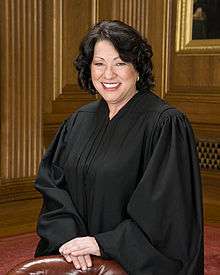
On March 31, the Supreme Court declined to hear the appeal of Lance Shockley of Missouri, the 36th death-sentenced person to be denied certiorari by the Court this year. At trial, Mr. Shockley’s jury foreman was removed before the sentencing phase based on evidence of serious bias — but Mr. Shockley’s attorney declined the opportunity to question the foreman or other jurors about the misconduct, and his conviction, which the foreman participated in, was allowed to stand. Mr. Shockley’s claim on appeal that his trial attorney was constitutionally ineffective would have been allowed to proceed in several other federal circuit courts but was denied in the Eighth Circuit based on its stricter interpretation of the law. Justices Sonia Sotomayor and Ketanji Brown Jackson dissented from the denial of review, arguing that the Supreme Court should have resolved the circuit split regarding appellate procedures. The justices also highlighted the severity of the underlying misconduct and Mr. Shockley’s attorney’s failure to vindicate his client’s legal rights.
Mr. Shockley was sentenced to death for the murder of a police officer who was investigating Mr. Shockley’s role in a drunk driving crash that killed a family member. During jury selection, a potential juror shared that he had self-published a book. Mr. Shockley’s attorney did not follow up on that statement, and the juror went on to become the foreman. As Justice Sotomayor described in her dissent, Mr. Shockley’s lawyer “did not discover until after the jury returned a guilty verdict why the foreperson had thought his authorship relevant”: it was because the book was a “’fictionalized autobiography’ describing the ‘brutal and graphic revenge murder of a defendant who killed the protagonist’s wife in a drunken-driving accident.’” The jury foreman brought his book — describing murderous vigilante justice against a drunk driver — to deliberations, where he showed it to other jurors before they voted to convict Mr. Shockley.
When Mr. Shockley’s attorney moved for a mistrial, the judge offered the attorney the opportunity to question the foreman and the other jurors — but the attorney “[i]nexplicably” declined and did not call any witnesses to support his mistrial motion. “As a result,” Justice Sotomayor wrote, “the trial court did not hear evidence regarding the foreperson’s alleged bias and misconduct or its effect on other jurors, some of whom later indicated that they had looked through the book.” The judge removed the foreman but denied the mistrial motion, allowing the conviction to stand. When the jury deadlocked on punishment, the judge imposed a death sentence, a procedure only authorized in two states.1
The key legal issue Mr. Shockley asked the Supreme Court to consider was whether, under federal procedures governing state prisoner appeals, he could bring a claim in federal court that his attorney had been constitutionally ineffective. A panel of Eighth Circuit judges voted 2 – 1 to deny him the opportunity to pursue that claim.
After state death-sentenced prisoners exhaust their state appeals, they may appeal their convictions and sentences in federal district court. However, if they lose in the district court, federal law holds that they can only appeal that decision if “a circuit justice or judge issues a certificate of appealability” (COA). Four federal circuit courts have interpreted that statute to mean that a death-sentenced prisoner can appeal as long as one of the three judges on the panel hearing the case votes to issue a COA. However, five federal circuit courts, including the Eighth Circuit where Mr. Shockley’s appeal was heard, have interpreted the statute to mean that a majority of the panel must agree to issue a COA.

Justice Sonia Sotomayor
According to Justice Sotomayor, this disagreement between the federal circuit courts represents a classic “circuit split” over a matter of appellate procedure with “significant consequences” for people facing execution across the country. She observed that “the grant of a certificate of appealability often marks the appointment of counsel, so its denial generally deprives indigent litigants of the opportunity for a counseled appeal.” She also contrasted the statute’s language of “a circuit justice or judge” (emphasis added) with another law establishing that a “majority” of judges determine a case’s ultimate resolution, suggesting that Congress intentionally “conditioned the right to an appeal on a single judge’s vote.”
Justice Sotomayor further argued that the single-judge interpretation “promotes efficiency” by pushing courts to consider the substance of a debatable case instead of quibbling over procedure. For example, after Mr. Shockley’s appeal was dismissed by the Eighth Circuit, two judges who were not on the panel dissented, saying that they would have granted rehearing en banc (by the full court). The “question whether to grant a certificate should not be a contentious one,” Justice Sotomayor wrote. “When a petition for certificate of appealability is sufficiently weighty to engender split opinions and even en banc litigation, as it did here, judicial resources are better spent simply considering the merits in the regular course.” This approach also exhibits “regard for fundamental rights and respect for prisoners as people” by answering claims “on their merits, rather than dismissing them out of hand.”
[B]y turning down Shockley’s appeal, the justices turned down the opportunity to clarify the rules and make the law uniform … The court’s refusal to settle the matter one way or another means that the rules will continue to operate differently in different courts around the country.
“It is difficult to see how an attorney’s decision not to call witnesses in support of a credible mistrial motion, when invited to do so by the presiding judge in a capital murder trial, could fail to constitute ineffective assistance of counsel,” Justice Sotomayor concluded, noting that the lower courts “plainly erred” in how they handled this claim. “Unfortunately, the Court leaves the issue for another day…[but the circuit courts] remain free to reconsider their operating rules.”
Shockley v. Vandergriff (2025) (Sotomayor, J., dissenting); Jordan Rubin, Justices Sotomayor and Jackson criticize court’s refusal to clarify criminal appeal rights, MSNBC, March 31, 2025; Kalvis Golde, Missouri man appeals death sentence after attorneys failed to press jury foreman’s bias, SCOTUSblog, February 8, 2025.
-
Missouri and Indiana are the only states that authorize the judge to impose a death sentence when the jury cannot decide on punishment. Florida and Alabama authorize death sentences based on non-unanimous jury votes of 8 – 4 and 10 – 2, respectively. Every other state requires a complete jury consensus to impose a death sentence.



